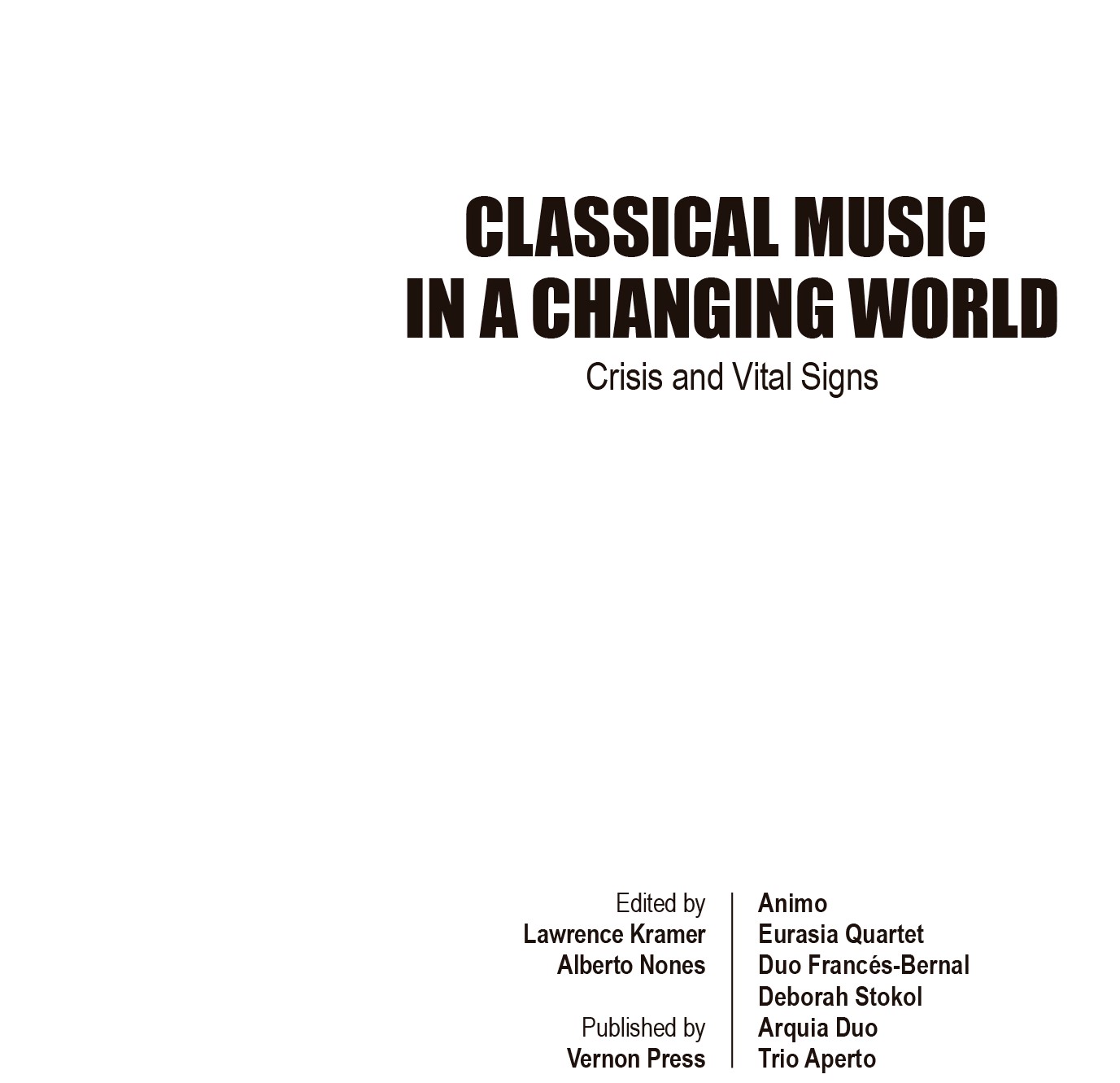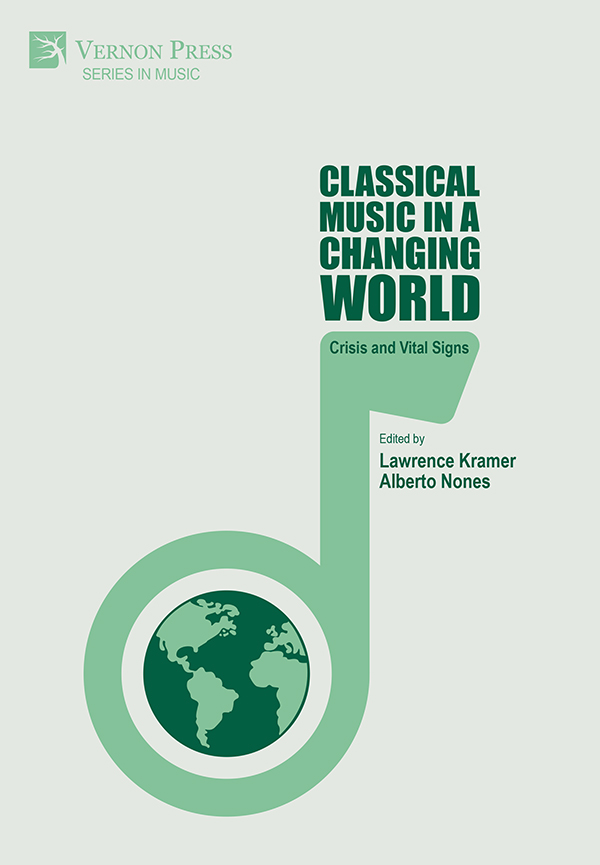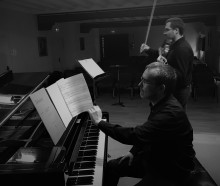CLASSICAL MUSIC IN A CHANGING WORLD
Crisis and Vital Signs
Lawrence Kramer, Alberto Nones (Eds.)
– – – – – – – – – – – – – – – – – – – – – – – – – – – – – –
Recientemente ha sido publicado un libro cd de gran interés para músicos e investigadores, Classical Music in a Changing World. Crisis and Vital Signs. Se reproducen aquí los contenidos de esta publicación, que incluye entre otras la grabación de las “Variaciones clásicas” de Joaquín Turina, a cargo del Dúo formado por el violinista Daniel Francés y el pianista Sergio Bernal, así como el texto Duo Bernal-Francés performs Turina’s Variaciones clásicas: the influence of traditional music in the creation of classical music.
Este libro, con Cd, está disponible aquí

In recent years classical music has become a test case for debates over the future of culture. As times have changed, the value traditionally placed on this music has been challenged on social rather than aesthetic grounds. Lovers of classical music have been asked how its privileged history can be reconciled with growing demands for social justice and social inclusiveness. They have been asked how the music’s standing as one of the great accomplishments of the West can be reconciled with the many injustices on which those accomplishments in part depended. How can the future of classical music escape the darker shadows of its past?
‘Classical Music in a Changing World: Crisis and Vital Signs’ addresses the crisis provoked by such questions in two complementary ways. Several of the chapters show how the classical music world is already grappling with the crisis, and finding vital signs beyond the borders of the music’s traditional European strongholds: in Turkey from Ottoman times to the present, in Colombia, and in a Black American film. Other chapters identify areas that still need improvement, especially on behalf of female and LGBTQ+ musicians, and suggest how advances can be made both on concert stages and in schools. This volume, which opens with an introduction by Alberto Nones that contextualizes the book and outlines the main arguments of its chapters, contains an essay by Lawrence Kramer that examines the place of classical music in the history of consciousness—a history now changing rapidly—and concludes with a Postscript written by the two editors.
The writing in this volume will be accessible to a wide audience, including scholars and students, professionals and amateurs, performers and listeners. Teachers will find it a source of lively classroom debate, and scholars a source of learning outside the usual arenas. The book’s “vital signs” include the accompanying audio tracks (available for download at: https://vernonpress. com/book/1281), which feature vibrant music-making from a diverse range of performers and composers.

Table of contests
Foreword
Alberto Nones
AEMC and “G. Puccini” Conservatory of Music of Gallarate
Chapter 1 The state of classical music: a Turkish detour
Özgecan Karadağlı
University of Alberta
Chapter 2 Local music and the classical music of others: misconceptions and possibilities in Colombian musical education
Francisco Castillo
FJdC District University – ASAB Bogotá
Chapter 3 Waxing and waning: musical depictions of cyclicity and fluidity in Moonlight… > Hamish Robb
Victoria University of Wellington, New Zealand
Chapter 4 Contemporary music theater and the experience of marginalization
Federica Marsico
Ca’ Foscari University of Venezia
Chapter 5 Relevance and meaning: classical music in the present
Natalie Tsaldarakis
City, University of London
Chapter 6 A call for context: historical explanations for our disappearing classical music culture
Amy Damron Kyle
Sorbonne University
Chapter 7 “The hard problem”: classical music and the history of consciousness
Lawrence Kramer
Fordham University
A Small Postscript: Musical awakenings
I – Lawrence Kramer
II – Alberto Nones
Authors and Performers
AEMC Scientific Committee
Notes on the Pieces that Appear in the Enclosed CD
Track list
Index
– – – – – – – – – – – – – – – – – – – – – – – – –
I warmly endorse any book that deals with music of any kind, especially the present one. With great interest I enjoyed the variety of articles contained therein.
The world’s new reality caused by the coronavirus pandemic is highlighting over and over that music has the power to uplift and console, not to mention to heal. The publication’s CD illustrates in sound how many genres thrive during these troublesome times. Music is an essential part of our souls and thus also of the fabric of human society.
Hamsa Al-Wadi Juris
Sibelius Academy
The University of the Arts Helsinki (Uniarts Helsinki), Finland
